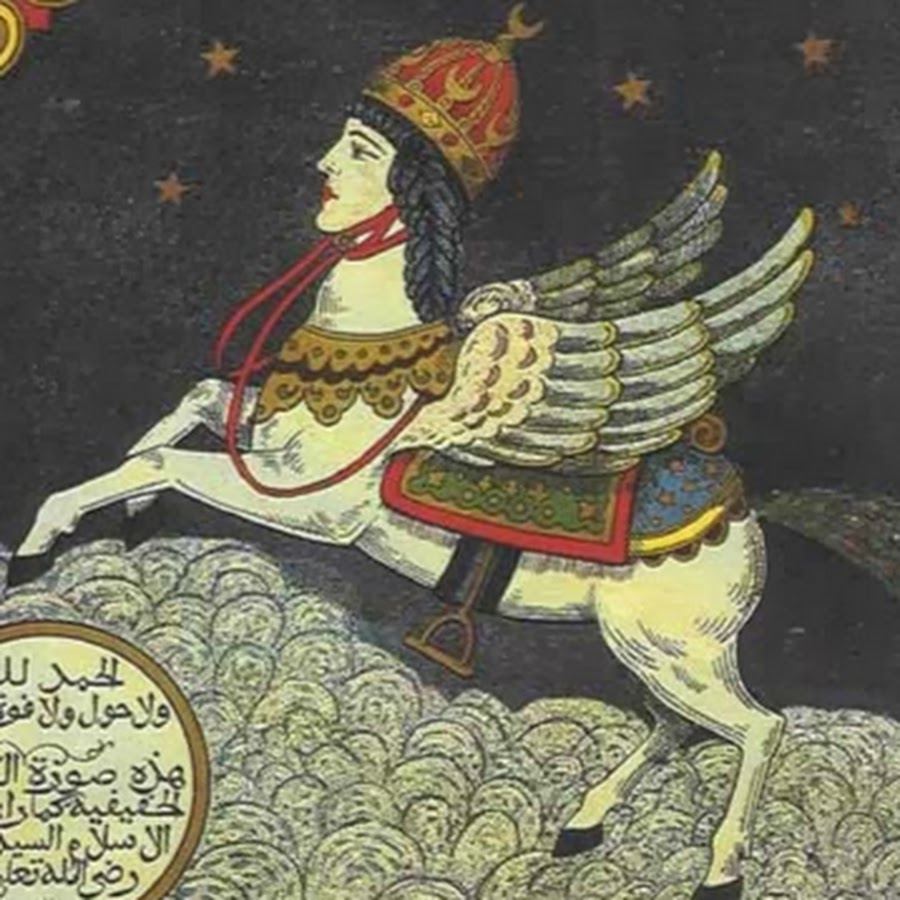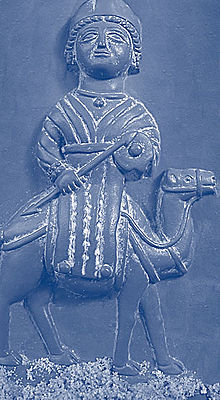
The Sunni jurisprudential field in general accepts the possibility of the Prophets committing venial, not mortal, sins and that they may have omitted or forgotten things, while the Shīʽa jurisprudential field takes an entirely opposed position.
SHĪʽITE IMAMITE JURISPRUDENCE in itself entirely disavows the possibility of the Prophets committing sins, be they venial or mortal, whether in their childhood or adulthood, whether before the call or subsequent to it on religious or mundane matters. It also discounts the possibility of their having omitted or forgotten anything. The Imams for the Shīʽa are as Prophets in terms of their infallibility. For instance, the following is said in the work ‘Aqā’id al-Imāmiyya (‘Doctrines of the Imamate’):
The Imam is like the Prophet, he must be incapable of any form of advice both visible or concealed, and incapable of omission, sin or forgetfulness.
Either this point of view stands in flat contradiction to the Qur’ān itself and opposes its position on sin – for the Qur’ān, addressing the Prophet Muhammad directly, explicitly states:
Lo! We have given thee a signal victory, That Allah may forgive thee of thy sin that which is past and that which is to come [Qur’ān, XLVIII, 1-2]
and there can be no forgiveness without first the possibility of there being sins.
Or, this Qur’ānic discourse is meaningless, given that the Prophet and the Imams after him were absolutely infallible according to the Shīʽa view. Indeed the Qur’ān goes even further as regards the Prophet Muhammad, for in the Sūrat al-Sharh we read: And eased thee of the burden which weighed down thy back [Qur’ān, XCIV, 2-3], concerning which Al-Tabari writes in his commentary on the verse:
‘We have forgiven thee thy former sins and lifted from thee the weight of the days of ignorance thou didst pass through’ … I heard al-Dahhāk say that the phrase And eased thee of the burden refers to the policies of which he once practised … The Prophet had committed sins which had become a burden to him, and God pardoned him of them.
The Qur’ān also contains a number of verses that contradict this Shīʽa position with respect to a number of the Prophets, in that the Qur’ān declares: And verily We made a covenant of old with Adam, but he forgot [Qur’ān XX, 115]. The account of Yunus (Jonah) is another example: And lo! Jonah verily was of those sent (to warn) when he fled unto the laden ship, and then drew lots and was of those rejected; and the fish swallowed him while he was blameworthy [Qur’ān XXXVII, 139-141]. Similarly, ‘Alī ibn Abī Tālib in the Nahj al-Balāgha[1] says: “I am myself not above the possibility of sinning, nor can I guarantee this.” For this reason the Imamate view on total infallibility cannot stand up at all to critical examination.
Divine inspiration is also subject to external influences
However, the Islamic arena in its many denominations presents a single, undisputed standpoint in its assertion of the issue of the Prophet Muhammad’s absolute infallibility with regard to his communicating the message of the Lord and concerning the verses of the Qur’ān. In fact we find echoes of this concept in the Qur’ān itself in the sūrat al-Najm: Nor doth he speak of (his own) desire. It is naught save an inspiration that is inspired [Qur’ān, LIII, 3-4] , for which al-Tabarī provides by way of interpretation:
What Muhammad utters in this Qur’ān is not from his own volition, for this Qur’ān is but an inspiration from God who inspired him thereto.
But this Islamic concept on the infallibility of the divine communication is itself not beyond the reach of criticism and examination, in that the circumstances of the revelation of the sūrat al-Najm establish that the divine inspiration, in the process of its revelation to the Prophet Muhammad, is also subject to external influences.
Commentators and historians record, in the context of the circumstances of the revelation of the sūrat al-Najm, something that has come to be commonly known as the ‘Account of the Exalted Females,’ or ‘The Satanic Verses’ as the Orientalists term them. In his commentary on verse 52 of the sūrat al-Hajj[2] al-Tabarī states the following:
The reason for which this verse was revealed to the Messenger of God was that Satan had interposed words onto his tongue during his recitation of the Qur’ān that God was revealing to him, things which God had not in fact revealed, and this bore heavily upon the Messenger of God and vexed him. So God consoled him about this in these verses.
What the phrase ‘Satan had interposed words onto his tongue’ refers to are verses in the sūrat al-Najm that arein praise of the divinities of the Quraysh: al-Lāt, al-ʽUzzā and Manāt. In his commentary on the sūrat al-Hajj al-Tabari relates and expands on the account of the exalted females or the Satanic Verses which were contained in the Makkan sūrat al-Najm:
When the messenger of God saw how the people had turned away from him, and was vexed by seeing them turn their backs to what he was bringing them from God, he hoped in his heart that he would receive from God something that would bring them and Him together. Out of his affection and eagerness for them, it pleased him to be able mitigate some of that which had been the cause of their anger towards him. While he thus pondered with himself and hoped and wished for this, God revealed to him the passage: By the Star when it setteth, your comrade erreth not, nor is deceived, and when it came to these words of God: Have ye thought upon al-Lat and al-ʽUzza and Manāt, the third, the other? Whereupon Satan put the following words onto his tongue while he was pondering with himself and wished to find something to offer his people: These are exalted females whose intercession is to be desired. [Qur’ān, LIII, 1-3, 19-20].
When the Quraysh heard this they rejoiced and were delighted by his reference to their divinities, and they hearkened unto him, while believers continued to believe what their Prophet brought them from their Lord and did not accuse him of any error, delusion or lapse. When it came to the end of the sūra and the issue of prostrating themselves before these divinities, they duly did so, while the Muslims prostrated themselves after the manner of their Prophet, believing in what he had said and following his instructions. The Qurayshi polytheists and others who were in the mosque prostrated themselves when they heard the name of their divinities mentioned, and no one in the mosque, believer or infidel, failed to prostrate themselves, with the exception of al-Walīd ibn al-Mughīra who was an aged man and was unable to do so. He therefore took instead a handful of earth and prostrated himself on that. Then the people left the mosque, and the Quraysh departed happy at hearing their divinities mentioned, saying: “Muhammad called on our divinities most beautifully, and claimed in his recitation that they are exalted females whose intercession is to be desired.”
News of the prostration reached some of the Companions of the Messenger of God in Abyssinia and word went round that the Quraysh had adopted Islam. Some men got up while others remained behind. But Gabriel came to the Prophet and said: “Muhammad, what have you done? You have recited before the people things which you did not receive from God, and have said what was not said to you.” At which the Messenger of God became saddened, and was in great dread of God. But the Blessed and Almighty God made a revelation unto him and acted mercifully to him, consoling him and lessening the gravity of the matter, saying that whenever Messengers or Prophets had wished as fervently as he did or loved as much as he did, Satan had always interposed upon them his own intentions, just as he had placed words upon his tongue. God then abrogated what Satan had interposed and confirmed his verses.
We can have no precise knowledge even today as to what is Makkan and what is Madinan
The Salafists and the Shīʽa have attacked the above account and attempted to deny it and erase it. This is for reasons related to Sunni Islamic concepts developed subsequently by the doctors of law, or associated with the fundamentals of doctrine, and the view that holds that one should look upon certain Imams as absolutely infallible. One of the most celebrated attempts at denying this account is that made by Shaykh Nāsir al-Dīn al-Albānī in his work Nasb al-Majānīq li-Nasf Qussat al-Gharānīq (‘Setting up Catapults to Blast the Tale of the Exalted Ones’). As is usual for hadith scholars, al-Albānī attempts to follow the isnād (chain of transmission) of this account and establish the weak authenticity of the narration (we should state here our view put forward in the book Naqd Nass al-Hadīth[3] that the Al-Jarh wa-Taʽdīl[4] process is in itself dubious and lacks objectivity). Nevertheless, al-Albānī recognizes at the beginning of his work that al-Hāfiz ibn Hajar had verified the isnād and pronounced it ‘sound’. So this book therefore amounts to no more than one researcher’s opinion on the account’s isnād, as opposed to another researcher on isnād more authoritative than al-Albānī himself.
This Salafist attempt itself clashes with the plain, direct meaning of verse 52 of the sūrat al-Hajj, as appears clear from the tendentious interpretation that al-Albānī presented in the introduction to his book. Similarly, Hishām Jaʽīt in his work The Historicity of Muhammad’s Preaching in Makka also attempted to discount the story. However the arbitrary nature of the nine reasons he adduced and used as evidence is quite patent, so that some simple comments on the margin of his work would suffice to refute all of them and reveal their tendentiousness. The account of the ‘Exalted Females’ is clear and admits of no room for doubt for obvious, direct reasons, whether from within the body of the Qur’ān itself or from the interpretation by the Orientalist Montgomery Watt in his work Muhammad at Mecca. The Qur’ān itself recognizes in the sūrat al-Hajj that:
Never sent We a messenger or a prophet before thee but when He recited (the message) Satan proposed (opposition) in respect of that which he recited thereof. But Allah abolisheth that which Satan proposeth. Then Allah establisheth His revelations. Allah is Knower, Wise. [Qur’ān, XXII,52]
All of the abrogations in the Qur’ān concern those things which were included specifically in the Qur’ān as opposed to anywhere else. For the verse speaks clearly of the process of abrogation of elements within the verses of the Qur’ān that were placed there by Satan, as a result of wishes expressed by the Prophet Muhammad.
But as for the comment that the sūrat al-Hajj is a Madinan sūra while the sūrat al-Najm is Makkan,madefor the purpose of discounting the tale, this constitutes no proof and cannot stand up to serious criticism. The process of collating the Qur’ān in specific sūras during the life of the Prophet Muhammad and then joining them together following his death was not made according to the historical sequence of their revelation. Instead, the verses were collected together into sūras and placed earlier or later in the text according to where they were considered to be appropriate, either directly on the instructions from the Prophet Muhammad or subsequently on the opinion of the Companions. Given that there are innumerable evidences that Madinan verses are contained in a Makkan sūra and vice versa, we can have no precise knowledge even today as to what is Makkan and what is Madinan, or as to the chronological sequence of the revelation. All attempts are guesses made according to general assumptions, the results of which are very dubious. Montgomery Watt writes:
It is impossible that this story should be a mere invention. No Muslim could have invented such a story about Muhammad, nor could any doctor of law or Islamic scholar of good reputation [famous or his views were followed] accept such a story from a non-Muslim [or from anyone whose Islam was suspect] unless he was completely convinced that it actually occurred. Muslims today tend to refuse this tale since it contradicts their idealistic view of Muhammad.
The tale is found in al-Tabarī in his history and commentary as we have excerpted above, in the Tabaqāt of Ibn Saʽd, and in a marginal, passing reference in the Ansāb al-Ashrāf and in many other sources. And even if it is not included in Ibn Ishaq’s abridgement of Ibn Hishām’s biography of the Prophet, the omission is clear and deliberate, as Hishām Jaʽīt himself confirms.
So infallibility, as a concept, was unknown to the early Muslims in the Islamic jurisprudential sense which we find today in doctrinal works. This concept appeared later as a pure logical necessity for a communication from the Almighty Lord. The origin of the viewpoint and the thinking behind this comes from clerics, scholastics and doctrinal partisans. This logical necessity was derived from the Qur’ānic verse: Nor doth he speak of (his own) desire. It is naught save an inspiration that is inspired [Qur’ān, LIII,3-4] and provides the entry point for all the controversy surrounding the question of infallibility and how far to extend this to the Prophets.
Infallibility, as a concept, was unknown to the early Muslims
But the problem of the comprehensiveness of the term ‘infallibility’ for every word and deed of the Prophets, as some of the Sunnis hold, or the Prophets together with the Imams, as held by the Shīʽa, is that the dispute is not about the types of ‘sins’ they are said to be immune from. For if that were all there was to it there would be no problem. The problem in Islamic thinking comes from the understanding that everything that issues from the Prophet – and the Imams according to the Shīʽa – whether words or deeds, have a divine source that permits of no error. Therefore these all constitute a potential source for legislation or for regulations that stipulate punishments for those who contravene them.
For its part, this is neither confirmed by the Qur’ānic verses nor by the sīra of the Prophet. For verses in which God censures the Prophet for a deed he has committed are many and varied in the Qur’ān (and are known as the ‘verses of censure’), just as there are hadith ascribed to the Prophet and passages in the sīra which transmit various tales of this type, the most famous of which being the incident of the pollination of the palm trees. When the Prophet saw the Muslims about to carry out this operation he stated clearly: “If you refrain from that, they will prosper”, that is, even if you do not pollinate the palm trees they will be just as fruitful. Of course, when the Muslims stopped pollinating the palm trees in obedience to the Prophet, the result was a ‘shays’, a poor crop, according to the account given in Muslim’s Sahīh. And when the Prophet made his famous remark (passed over in silence by both Sunni and Shīʽa Islamic clerics): “you are the wiser in your mundane affairs,” he then also went on to say: “if this is useful to them then let them do this; it was just a thought which I had, so do not hold it against me.”

Suggested Reading
The tale of the ‘Exalted Females’, the pollination of the palm tree, and the event we mentioned earlier with ‘Umar ibn al-Khattāb,[5] and many other incidents such as the objection voiced by al-ʽAbbās the uncle of the Prophet to a prohibition being placed on making use of aromatic Adhkhar plants within the circuit of the Makkan sanctuary, and the Prophet Muhammad’s acceptance of this objection (for all the emphasis placed on Islamic clerical opinion that it is not for mankind to decide on what is lawful or forbidden but for the legislator alone) – all this clearly shows the extent of the problem of the broad concept of infallibility, not only with respect to mundane matters but also concerning matters related to the divine communication. This makes it imperative to take another look at this Islamic concept and all the things that result from it.
[1] Author’s note: Bearing in mind the fact that the entire contents of this book and its association with ‘Alī ibn Abī Tālib are the subject of serious doubt.
[2] Never sent We a messenger or a prophet before thee but when He recited (the message) Satan proposed (opposition) in respect of that which he recited thereof. But Allah abolisheth that which Satan proposeth. Then Allah establisheth His revelations. Allah is Knower, Wise [Qur’ān, XXII,52].
[3] Hasan Mohsen Ramadan, نقد نص الحديث : جهيمان العتيبي واحتلال الحرم المكي كمدخل (‘A critique of the Hadith Text: Juhaymān al-ʽUtaybī and the Occupation of the Meccan Mosque’), Dār al-Hasād, Damascus 2010.
[4] A process of testing the probity of the hadith reporters as an indicator of their reliability (Ed.)
[5] See the first part of this article.
Main picture: Yūnus (Jonah) and the Whale, from the Jāmiʽ al-Tawārīkh of Rashīd al-Dīn Faḍl Allāh b. ʿImād al-Dawla, Abu ’l-Khayr (‘Rashīd al-Dīn Ṭabīb’), c. 1314.
Read Part 1 of this essay here



